
Best Tips for Winter RVing
Best Tips for Winter RVing
GoLife’s guide for cold-weather camping.
By: GoLife Staff
While some RVers drive away from winter weather to 'snowbird' somewhere warmer, others head into the cold, snowy areas for a more adventurous camping trip. This may be to enjoy favorite activities like skiing, snowboarding, snowshoeing, and even ice climbing -- or to visit family for the holidays.
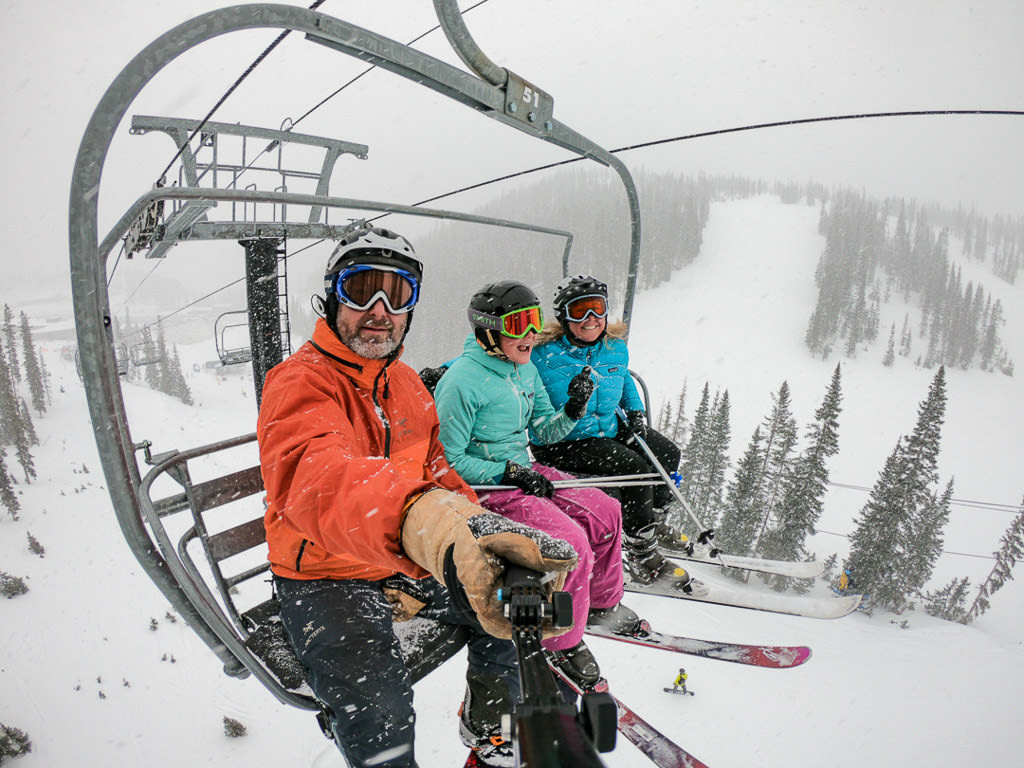 Photo by Peter Holcombe.
Photo by Peter Holcombe.
However, if you are planning to venture into the world of winter RVing, it's important to do some additional planning. Luckily, our GoLife writers have shared some great tips for a successful cold-weather camping experience over the years! Here are the best ones...
Overall Tips for Winter RVing
1. Read Your RV Manual Thoroughly!
The instructions on winterizing your RV or using it in winter conditions will vary depending on what kind of rolling home you are using. Always read your owner's manual thoroughly regardless of any tips you read elsewhere. To make this easier, Winnebago has the owner's manuals available online in PDF format, so you can download yours and search for the information you need.
2. Decide Whether You Should Fully Winterize or Not
Since many of the issues that can arise during winter RVing involve the plumbing, it is often a good idea to winterize your RV before the temperatures drop too much. This is also necessary if storing or not using your RV over the winter if you live in a cold climate. While directions will vary by RV, the FitRV explain the basic supplies and process needed for winterization in this article.
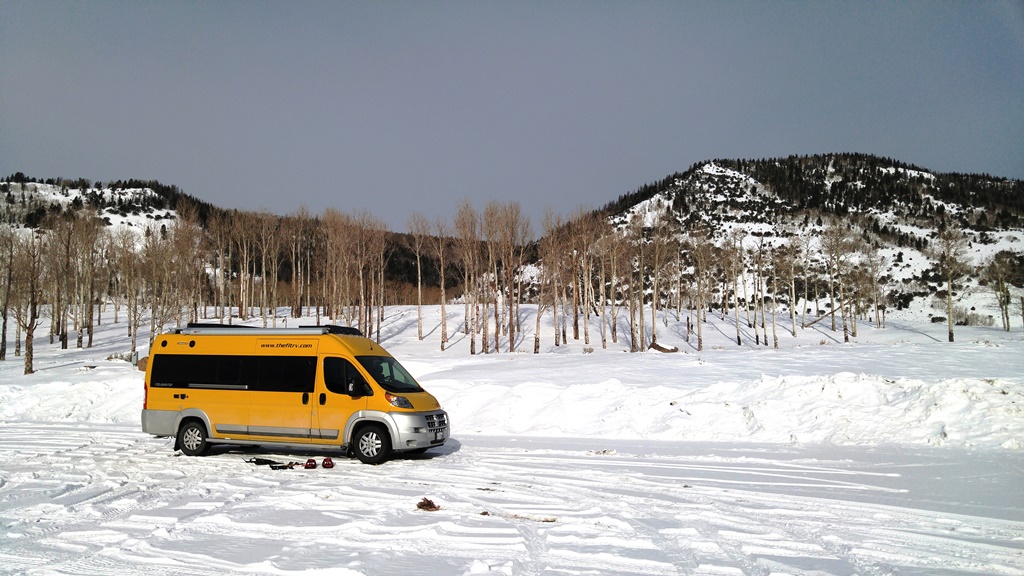 Photo by James & Stef Adinaro.
Photo by James & Stef Adinaro.
3. Bring Additional Winter Necessities
Of course, you'll want winter clothing and gear, as well as cozy blankets and plenty of firewood (if planning some cozy campfire time). However, you'll also want to be sure to bring water jugs with you if winterizing your plumbing before your trip and any additional gear for keeping your RV pipes and tanks from freezing.
And don't forget to fill up on propane and fuel as well!
4. Water & Temperature Management is Key
According to the Holcombes, the safest bet is to winterize. But, if your RV has the right features to function in winter (like strategically concealed pipes), you may choose to still use the plumbing. Just be sure to remember the hot water heater and waste tank valves are usually the two exceptions that need some extra attention. Read more on this here.
5. Be Safe When Using Heat
Before using your rig's heater, James & Stef of the FitRV recommend you inspect your RV's furnace for safety and make sure your vents are clear. As in any season, it is important to also make sure carbon monoxide, smoke, and propane detectors are working properly. (Read more of their winter RVing tips here).
If you feel the need to supplement with additional heat, be sure to choose a safe option that you can realistically power -- especially if RVing with kids or pets who may knock them over.
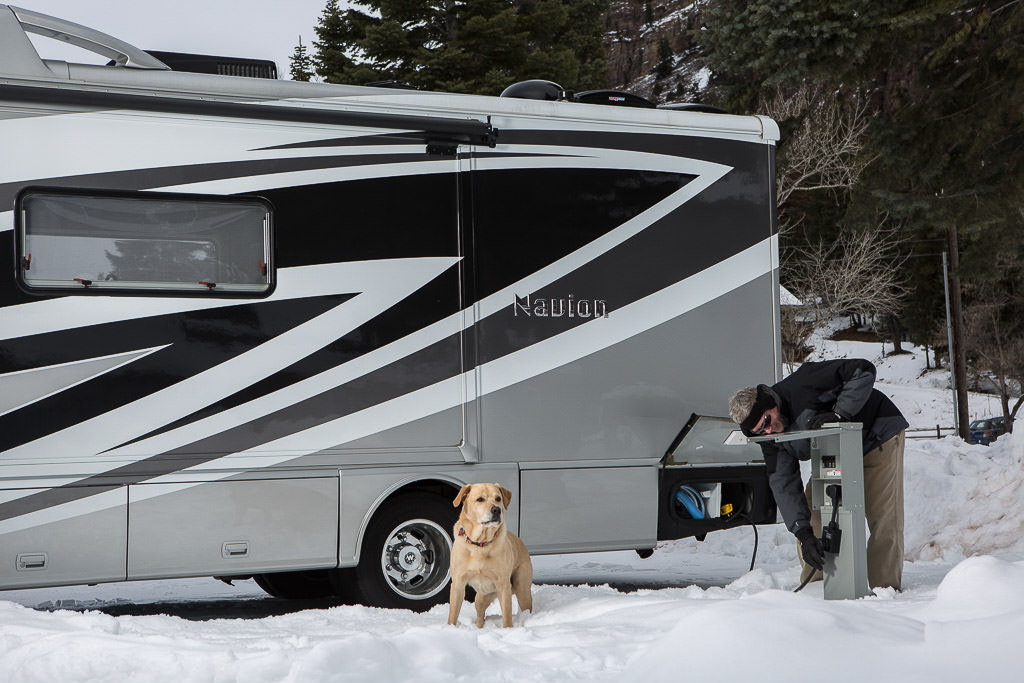 Photo by Peter Holcombe.
Photo by Peter Holcombe.
6. Work to Reduce Condensation
As the temperature drops, condensation inside your RV often rises. However, there are ways to reduce moisture in your RV through specialized products as well as adjusting behaviors. The Bajuelos have put together helpful tips for reducing RV condensation.
7. Prepare to Drive in Winter Conditions
In addition to just taking it slow and steady when driving in icy or snowy conditions, the Holcombes also recommend that you make sure your tires are in good shape and pack the tire chains. If it gets really dicey, find a safe space to stop to wait it out.
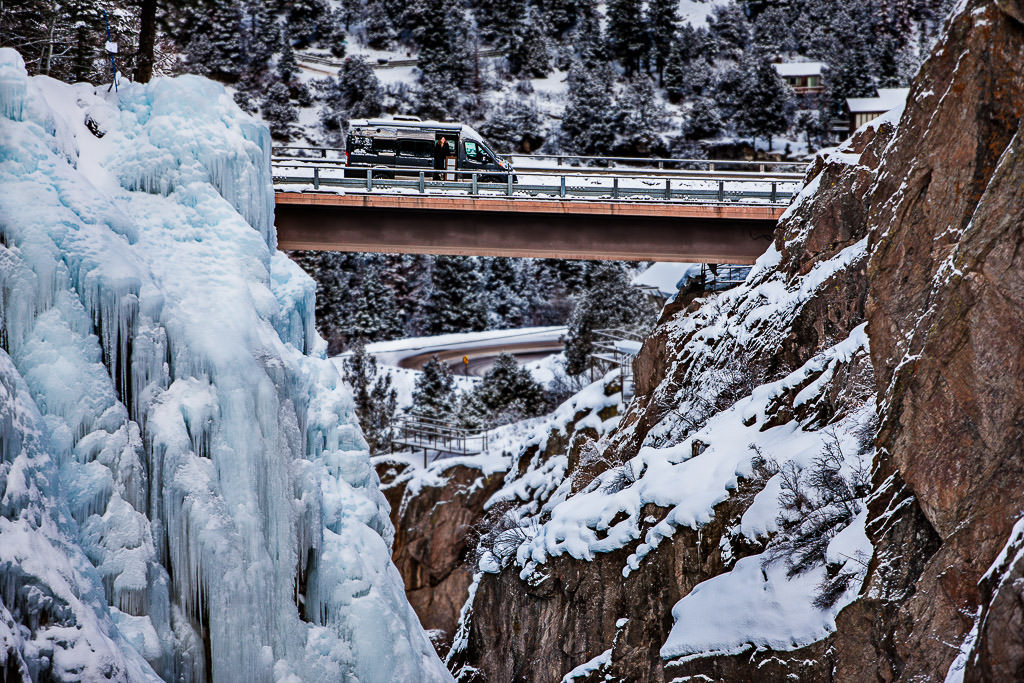 Photo by Peter Holcombe.
Photo by Peter Holcombe.
What Not to Do When Cold-Weather Camping
On their first winter RVing trip, the McKenzies made a few big mistakes. Here's some important tips of what not to do that they learned the hard way:
- Don't forget to read your owner's manual.
- Don't leave your regular freshwater hose connected.
- Don't assume water lines won't freeze because the RV is being heated (exposed portions can be an issue).
- Don't forget waste tanks can freeze.
Read more about what NOT to do when winter RVing and the solutions they found.
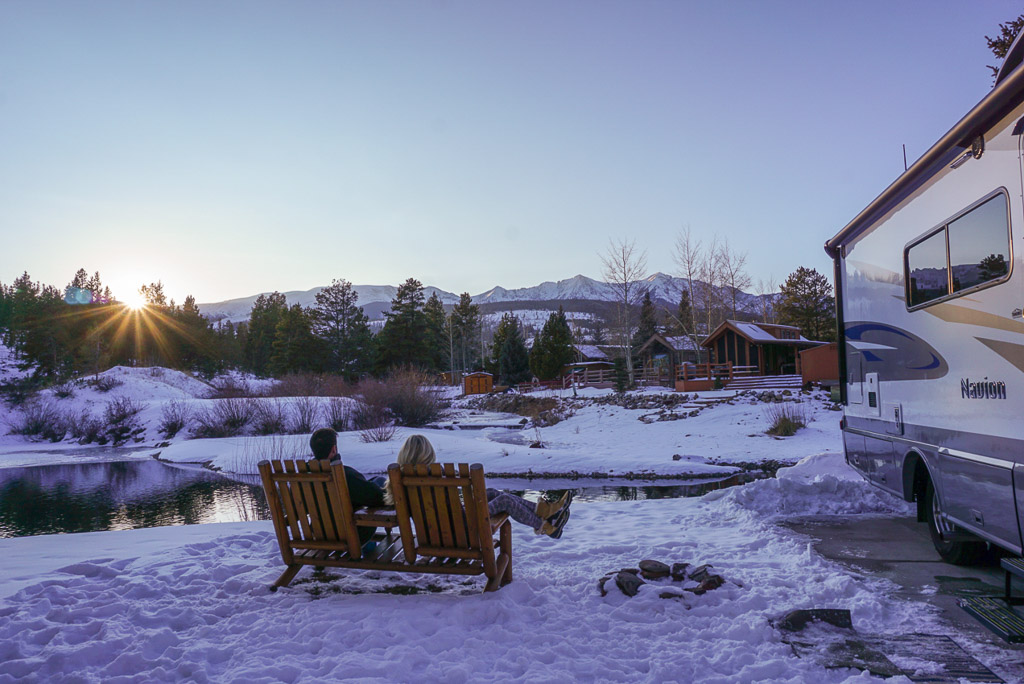 Photo by Dan & Lindsay McKenzie.
Photo by Dan & Lindsay McKenzie.
Some Helpful Gear for Winter RVing
- Heated freshwater hose if staying hooked up to water in winter.
- RV antifreeze if winterizing your plumbing.
- Insulated skirting to put outside the RV to help avoid freezing.
- Additional heaters to use indoors (safely!) when using shore power.
- A heat lamp can come in handy to keep exposed water lines (often behind water tank fill-up compartment) from freezing.
Not planning to use your RV at all this winter? Check out these tips for putting your RV away for the winter.
Hopefully, these tips and associated articles will give you a detailed understanding of what winter RVing will entail. But, if you've decided this type of cold-weather camping just isn't for you, there are plenty of places to enjoy a warmer winter -- like Florida and Southern California. And for more inspiration, here's a list of pet-friendly warm winter destinations and golf courses with nearby camping for snowbirds.
Happy winter travels!
Comments
Comments on this post are moderated, so they will not appear instantly. All relevant questions and helpful notes are welcome! If you have a service inquiry or question related to your RV, please reach out to the customer care team directly using the phone numbers or contact form on this page .